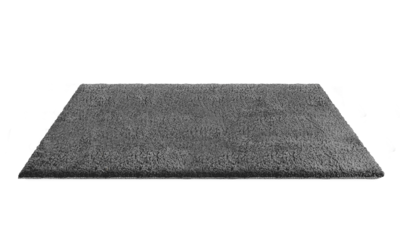Yoga is an ancient Indian spiritual and ascetic discipline, which was primarily a form of meditation. Yoga is an exercise that focuses on stretching and strengthening the body to help improve overall health and well-being. Recently, it’s become well-known to use yoga for sleep as it increases your body’s ability to relax, which makes it easier to fall asleep.
Embracing Yoga for Sleep
In the realms of our sleep-challenged society, we're constantly searching for ways to attain that elusive, quality sleep. A solution lies in the practice of yoga for sleep, a natural and time-tested method to soothe the body and mind into a tranquil slumber.
The Science of Yoga and Sleep
Yoga, an ancient mind-body practice, stimulates the relaxation response, lowers stress hormones, and reduces the heart rate, setting the stage for a peaceful night. Recent scientific research validates this, linking yoga practice with improved sleep quality and duration.
The Benefits Of Yoga For Sleep

The benefits of yoga for sleep are manifold and touch on every aspect of holistic wellbeing.
1. Reduced Stress and Anxiety
Yoga's power in mitigating stress and anxiety is well-documented. The combination of controlled breathing, physical postures, and meditation helps to calm the mind, reducing cortisol levels, and fostering an overall sense of peace. This reduction in stress and anxiety can dramatically improve sleep quality.
2. Enhanced Physical Relaxation
Yoga poses target physical tension, helping you to stretch out tight muscles, enhance flexibility, and promote relaxation. This release of physical tension aids in achieving deeper and more restful sleep.
3. Improved Circadian Rhythm
Regular evening yoga practice can help to regulate your body's natural sleep-wake cycle, or circadian rhythm. By cultivating a consistent routine, you signal to your body when it's time to prepare for sleep.
4. Cultivating Mindfulness
Yoga also fosters mindfulness, helping you to stay present and avoid the swirling thoughts and worries that often keep us awake at night. By focusing on your breath and body during your practice, you can carry this mindfulness into your sleep, encouraging a restful and rejuvenating night.
Summary
By reaping these benefits, yoga provides a pathway to better sleep, better health, and better quality of life. Adopting a yoga routine is a step towards holistic health and well-being, fostering better sleep, and by extension, a more vibrant, energetic day.
Which Yoga Is Best for Good Sleep?
Restorative yoga is the perfect type for inducing sleep. This style focuses on calming the mind and relaxing the body through slow movements and prolonged poses. Key poses for better sleep include the Legs-Up-The-Wall Pose (Viparita Karani), Child's Pose (Balasana), Forward Bend (Uttanasana), Reclining Bound Angle Pose (Supta Baddha Konasana), and Corpse Pose (Savasana). Practiced consistently, these poses can lead to deeper, more restful sleep.
When to Do Yoga for Better Sleep
While yoga can be done at any time of day, performing yoga for sleep ideally happens in the evening. An evening yoga routine allows you to release the tension and stress accumulated throughout the day. A gentle, restorative yoga practice 30 minutes to an hour before bed can prepare your body and mind for a restful sleep.
How to Incorporate Yoga for Sleep into Your Routine
Incorporating yoga for sleep into your nightly routine doesn't require a hefty commitment. Even just a few minutes can make a difference. Start with simple poses, focus on your breath, and gradually extend your practice as your comfort and familiarity grow. Be patient and compassionate with yourself. The goal is to relax, not to achieve perfect form.
Conclusion: Yoga for Sleep - Your Path to Peaceful Nights
Yoga for sleep isn't just another wellness trend — it's a way of life that nurtures the mind, body, and spirit. Embrace the peaceful transition to dreamland through yoga, and say goodbye to counting sheep. Immerse yourself in this practice and awaken to the transformative power of sleep nurtured by yoga.
Check out Puffy mattress reviews from real customers and see how we compare with other brands.
Disclaimer. We love sleep and we want you to get the best sleep possible. But we do not provide medical advice. This blog is intended for informational purposes only. It is not a substitute for professional medical info, diagnosis, or treatment. Never ignore professional medical advice in seeking treatment because of something you have read on our blog.

- Lifetime Warranty
- 101-Night Trial
- Non-Shedding Area Rug
- Free, Contactless Delivery













